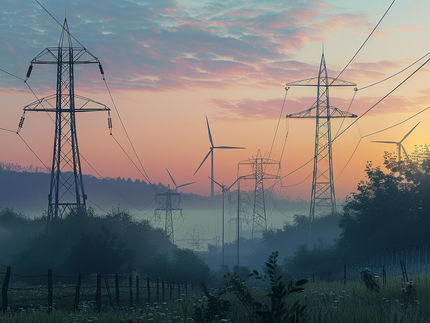Chemical industry: procurement is the most effective way to achieve carbon neutrality
The majority of German chemical companies see the adjustment of their procurement strategy as a key way to successfully master the challenge of carbon neutrality and compensate for expected competitive disadvantages. Sustainability aspects are already a central decision-making factor in the procurement of raw materials. Impending customs duties and the trade conflict between the USA and China are seen as the greatest risks to the security of supply. These are the key findings of the current trend study on procurement in the German chemical industry published by consulting specialist CAMELOT Management Consultants.
Around 200 managers from large and medium-sized chemical companies in Germany were interviewed about current developments in chemicals procurement for the study. The chemical industry in Germany has clearly committed itself to the task of achieving carbon neutrality by 2050, but the implementation of new production technologies is almost impossible without financial support, as provided by the Federal Government’s “National Decarbonization Program”. “This makes it all the more important for chemical companies to find their way to carbon neutrality in other areas of the value chain as well. Procurement plays a decisive role here,” says Dr. Josef Packowski, Managing Partner at CAMELOT, about the study results.
The chemical industry as an early warning system for German industry is particularly affected by the impending recession. It is therefore all the more remarkable that 63% of the chemical managers surveyed stated that they wanted to stick to sustainability targets despite falling margins. Sustainable evaluation criteria are already surprisingly widespread in procurement decisions. These include above all the manufacturer’s technology (90% of respondents), the raw material base (83% of respondents), the consideration of corporate social responsibility standards (80% of respondents) and the level of emissions (63%). The importance of these factors will continue to increase as part of the decarbonization initiative. Vegetative raw materials are the most commonly purchased sustainable raw material. However, only 23% of the study participants stated that they use recycled plastics
The challenge of CO2 neutrality
The move towards alternative energy sources is considered by the majority to be a risk for competitiveness. German chemical managers see an adjustment of the procurement strategy and more efficient plants (70% each) as the most effective countermeasures. The majority consider a backward integration of upstream stages in the value chain as well as relocations to be out of the question.
Raw material markets and security of supply
As far as the procurement markets are concerned, large companies expect the relevance of the European raw materials market to decline, while the USA is perceived as a threatening competitor. Based on their experience with REACH, German chemical managers see the greatest impact of regulatory changes in Europe, followed by North America and Asia. Customs duties and trade conflicts are currently seen as the greatest risk for raw material procurement. In the risk management of unforeseen events, strategies already exist in many cases, but the reaction speed is too slow. In the case of force majeure events, for example, this is more than five days on average.
In general, chemical managers still see a lot of potential in purchasing, which – if used correctly – can contribute to an increase in corporate success.
Other news from the department business & finance

Get the chemical industry in your inbox
By submitting this form you agree that LUMITOS AG will send you the newsletter(s) selected above by email. Your data will not be passed on to third parties. Your data will be stored and processed in accordance with our data protection regulations. LUMITOS may contact you by email for the purpose of advertising or market and opinion surveys. You can revoke your consent at any time without giving reasons to LUMITOS AG, Ernst-Augustin-Str. 2, 12489 Berlin, Germany or by e-mail at revoke@lumitos.com with effect for the future. In addition, each email contains a link to unsubscribe from the corresponding newsletter.
























































